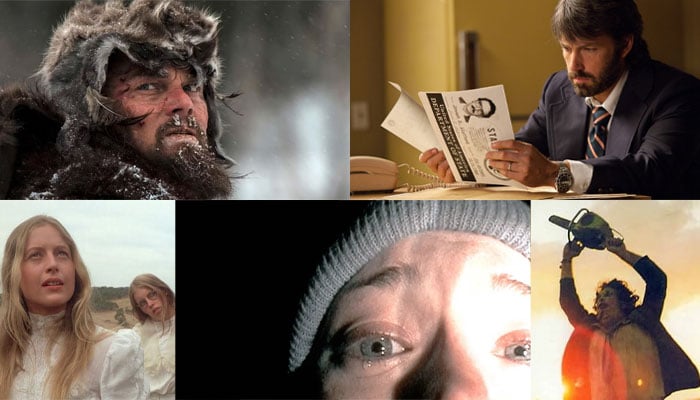Home / Entertainment
Top movies based on true events which are just products of clever marketing campaigns
When marketing campaigns deliberately get it wrong!

“Based on true events” is a banker opening to get audiences hooked for the entirety of any movie — even if the movie is selling utter claptrap.
Over the years, many such titles were sold on the promise of a thrilling reality, when the truth couldn’t have been farther from it.
Here are some of those:
The Revenant (2015)
Leonardo DiCaprio’s stellar premise for securing the Oscar that always eluded him, The Revenant was marketed as based on a true account from the life of American explorer Hugh Glass.
While Glass was a real figure, much of the film’s central plot was its own invention — including his Native wife and part Native son.
Argo (2012)
A revered political thriller and Best Picture winner, Argo was a heavily embellished retelling of real events.
Ignoring the significant Canadian contributions to the rescue mission for American hostages in Iran, which entailed CIA agents posing as Hollywood producers, the film also invented the obstacles which the team is depicted to have faced — all the while the fake film at the centre of the plot was never called Argo to begin with.
Picnic at Hanging Rock (1975)
Based on a novel by Australian author Joan Lindsay, the film parroted its source material’s claims of the story being real when in fact, it never was.
While the titular location does very much exist, the plot about a bunch of schoolgirls disappearing on their picnic was devised by Lindsay herself, based on a rather vivid dream, according to her housekeeper Rae Clements.
The Texas Chainsaw Massacre (1974)
The truth distorting marketing strategy usually proves most useful for horror movies and The Texas Chainsaw Massacre perfected the deceptive craft.
A full fledged franchise today and widely known to be fiction, audiences in 1974 did not get off easy and had to sit through the movie’s harrowing events thinking they were real, per its opening narration.
The Blair Witch Project (1999)
The definitive blueprint for the found footage genre, The Blair Witch Project’s innovation only worked because they marketed it as a true account.
Since found footage style of filmmaking was a new invention, the filmmakers took a major gamble and cast non-actors as protagonists, who were not allowed to make promotional appearances or book other acting work to maintain anonymity and secure the film’s widely spread false campaign.